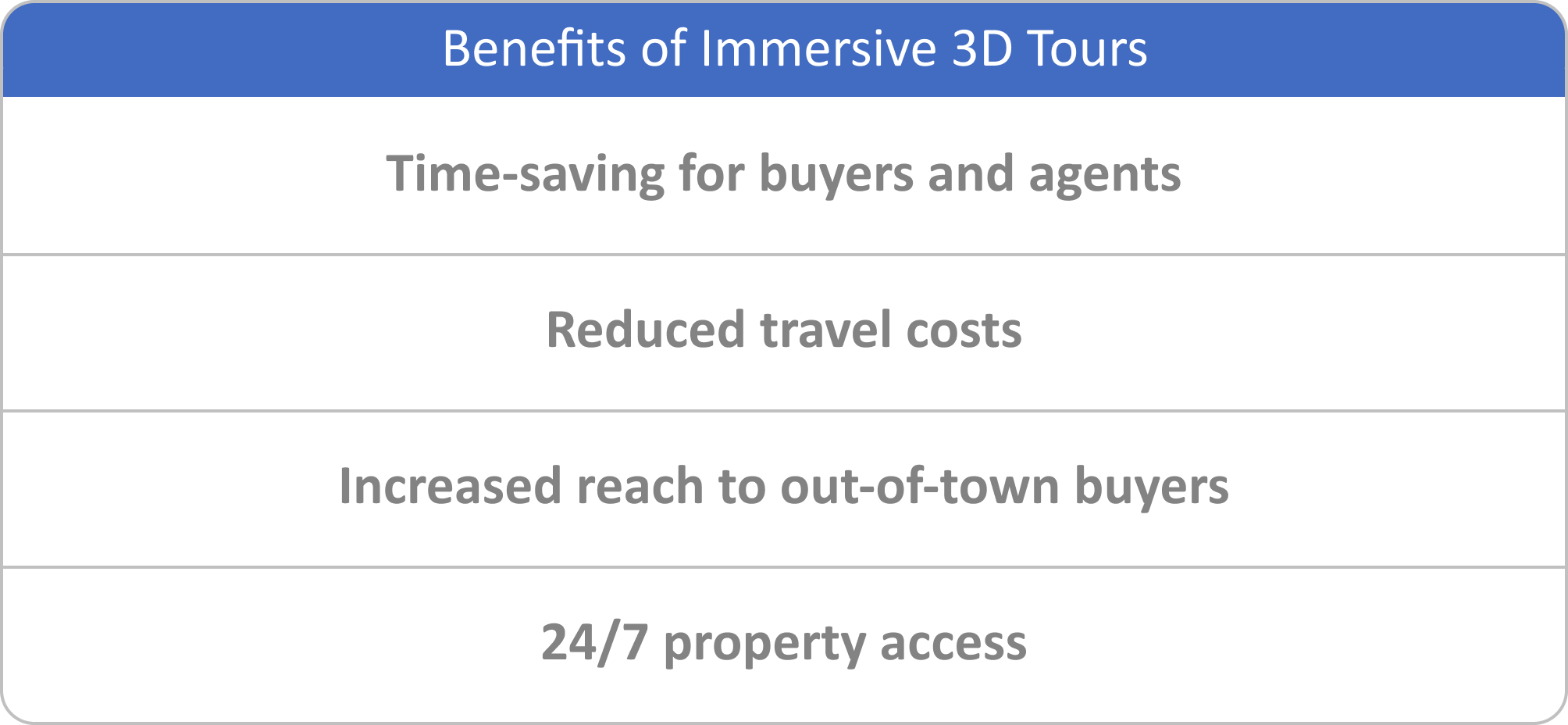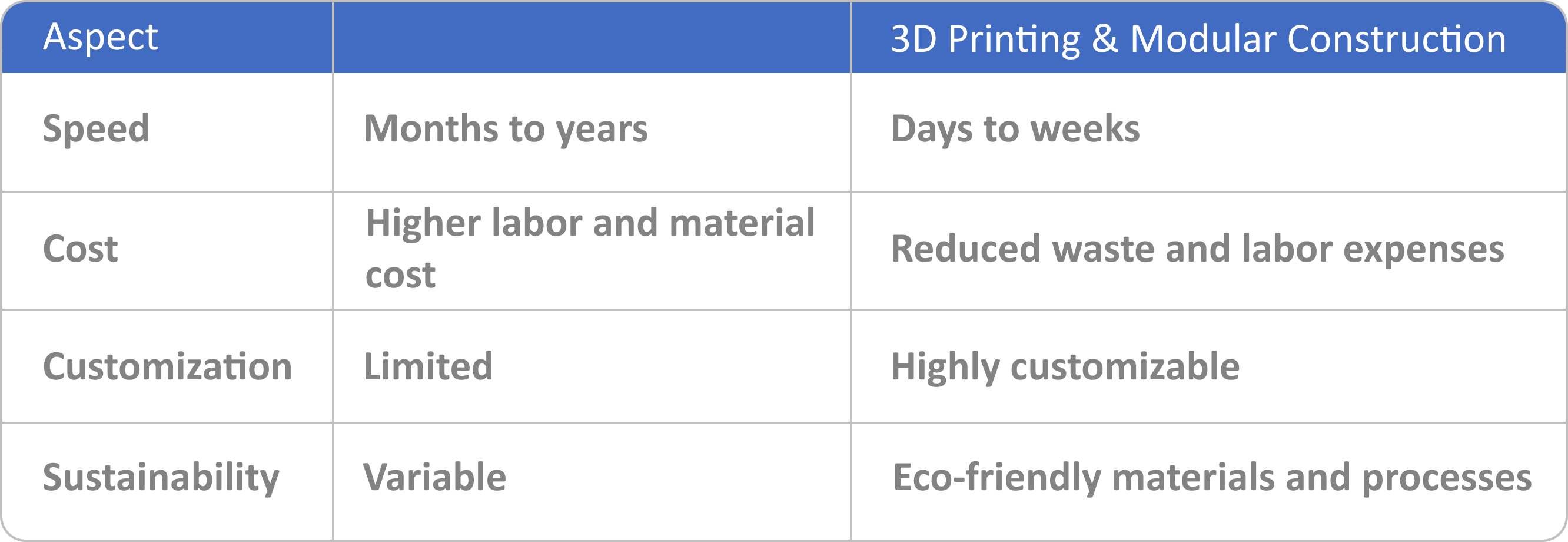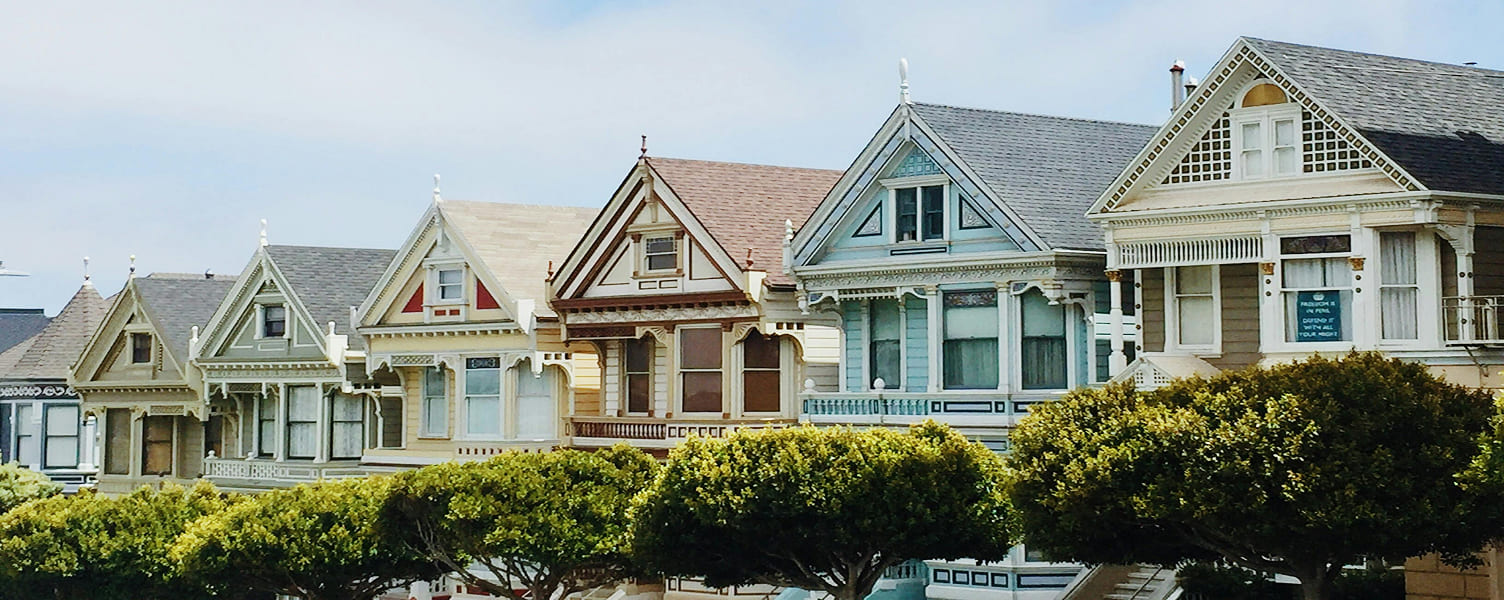Introduction
In today’s technology-driven AI world, where every industry
is adopting AI, the real estate industry is also
revolutionizing itself with some of the latest technologies.
Just imagine looking at a 3D model of your dream home or
visualizing you are living in your dream home through VR.
Welcome to the future of the
real estate industry
, where technology is reshaping every aspect of this
industry.
In this blog, we will explore some upcoming technology
trends to look out for in the forthcoming years in the real
estate industry. From AI, IoT, and VR to 3D printing and
modeling, we will explore each technology trend one by one
and how these technologies are creating smarter, more
efficient, and sustainable real estate solutions. So let's
explore how these innovations are set to transform the way
we interact with the spaces we live and work in.
AI-Driven Real Estate Analytics and Predictions
A. Accurate Property Valuation Models
AI-driven analytics are helping real estate agent and buyers in determining the property value by examining the property features, past property trends in the area, surrounding amenities, and local market trends. By combining these factors, AI can provide the precise valuations of the property as compared to manual and old fashioned traditional methods.
.png)
B. AI-powered Investment Opportunity Identification
Investors looking to invest in real estate can leverage AI to determine:
- Emerging real estate hotspots.
- Predict future market trends.
- Analyze risk factors.
- Optimize portfolio allocation.
These factors can help investors in making some key decisions which can potentially help them to increase their return on investment in future.
C. Personalized Property Recommendation For Buyers
AI algorithms can examine the buyer persona and, based on that, can recommend the desired properties to the buyer. To match the property with the buyer persona, AI can examine the characteristics of buyers like buyer personal preference, budget constraints, lifestyle, and future growth opportunities. This personalization streamlines the property-hunting process, saving time for both buyers and real estate agents.
Virtual and Augmented Reality in Property Viewing
A. Immersive 3d Property Tours
Virtual reality is revolutionizing the way real estate buyers view and explore the property. With immersive VR technology, buyers can walk through their dream home from the comfort of their homes. These VR tours not only save time but also give a realistic feel of the property space and layout, giving buyers a feel for the property before visiting in person.

B. AR Enhancing The Property Staging and Customization
AR has enhanced the property staging and customization to the next level. Buyers can now visualize their property by placing different furniture's, color schemes, decor options, in real-time. This technology allows for:
- Personalized virtual staging.
- Instant room measurements.
- Visualization of renovation possibilities.
- Testing of different lighting scenarios.
Stay ahead of the curve! Embrace the latest tech trends and revolutionize your real estate business today!
Get In Touch
Internet of Things (IoT) for Smart Homes and Buildings
A. Energy Efficient Property Management System
Energy efficient property management systems are revolutionizing the real estate industry, by leveraging IoT technology, to optimize energy consumption, reduce costs and minimize environmental impact.
By implementing these systems, property managers can:
- Reduce operational costs.
- Improve tenant comfort and satisfaction.
- Meet sustainability goals and compliance requirements.
- Enhance property value.
Key features of the of the energy efficient property management system are:

B. Advanced Access Control & Security Solutions
IoT based security systems offer unparalleled security to smart homes and buildings. These IoT based solutions include:
- Biometric access control.
- AI-powered surveillance cameras.
- Smart locks with remote access capabilities.
- Intrusion detection systems with instant alerts.
C. Personalized Living Experiences Through Connected Devices
Personalized living experiences through connected devices refer to the use of smart technology, such as IoT-enabled appliances, AI-driven assistants, and automation systems, to tailor home environments to individual preferences. These devices learn user habits and adjust settings for comfort. Some of the offerings provided by these IoT devices are:
- Voice-controlled smart assistants.
- Customizable lighting and ambiance settings.
- Automated routines based on user preferences.
- Integration with wearable devices for health monitoring.
As we move towards 2025, these IoT applications will continue to transform the real estate landscape, offering enhanced efficiency, security, and personalization for both residential and commercial properties.
3D Printing and Modular Construction Technologies
A. Rapid And Cost-Effective Property Development
3-D printing and construction are revolutionizing the real estate industry, by offering unprecedented speed and cost efficiency. 3D printing and construction technology transform the traditional process allowing for faster project completion such as:

B. Customizable And Sustainable Building Materials
The introduction of 3D printing within the real estate industry allows for greater flexibility and opened new possibilities for sustainable and customizable building materials. This approach enables the adoption of environment friendly materials that can be designed to meet the needs of the specific project.
Key advantages of 3D-printed building materials:
- Recyclable and biodegradable options.
- Enhanced thermal insulation properties.
- Improved structural integrity.
- Reduced carbon footprint.
Impact of Mobile Apps on Real Estate Industry
A. Virtual Tours and 3D Walkthroughs
Mobile apps are revolutionizing the way potential buyers and real estate agents search for properties. With a user-friendly interface and powerful filters, real estate users can easily filter out their preferred property based on certain specific criteria like location, price, and surrounding amenities. One of the most significant advantages of these mobile apps are their ability to show or offer a 3D view of the property. Some of the key benefits of mobile apps are:

Conclusion
Moving into 2025, the real estate industry is expected to
undergo massive changes through the integration of AI,
automation, and data analytics. The use of advanced AI
driven analytics will improve property valuations and
enhance market forecasts. Augmented reality (AR) and virtual
reality (VR) will redefine property tours, showcasing remote
property viewing experience. Additionally, IoT enabled
smart homes and buildings will also advance further,
improving energy management, security, and user convenience.
The integration of these emerging technologies will not only
improve operational efficiencies but also redefine the
customer experience, making real estate transactions more
seamless and data-driven. As the focus on sustainability and
smart city efforts continues to grow, improvements to green
building technologies and IoT city-based AI solutions will
be realized. In 2025 and beyond, real estate professionals
and businesses that embrace these innovations will be better
positioned to thrive in an increasingly digital and
tech-driven landscape.

 Arham Jain
Arham Jain
.png) 14/02/2025
14/02/2025
 6 Mins
6 Mins
.png)


